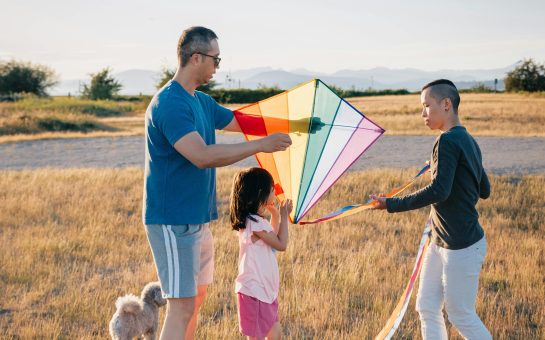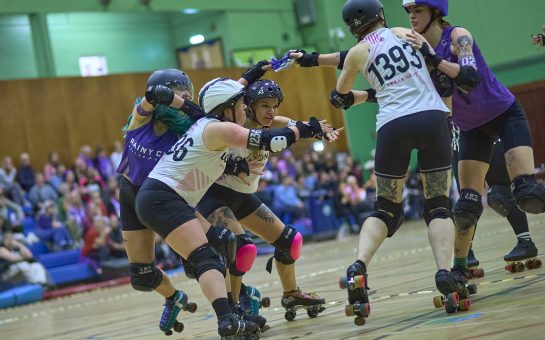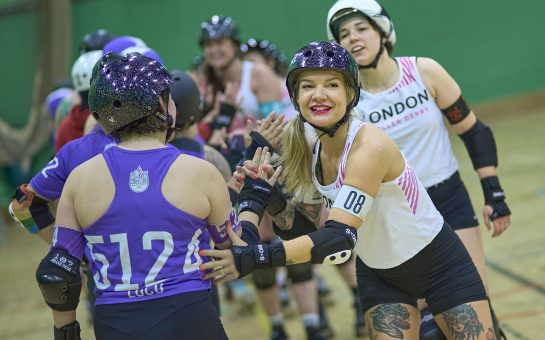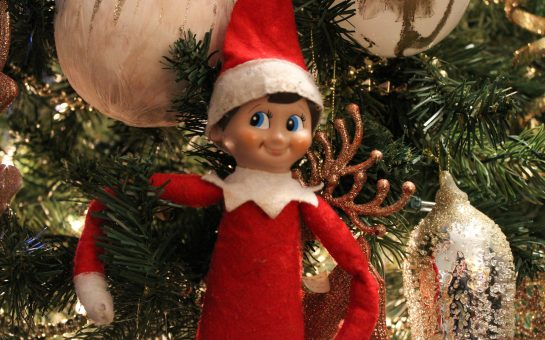To celebrate LGBT History Month, MM talk to LGBT figures from across Greater Manchester about their experiences of coming out and what progress they think the city still has to make towards equality.
Next up is Jen Yockney, editor of bisexual magazine Bi Community News, who’s been volunteering consistently for grassroots bisexual projects since the early 90s, winning a Home Office Year Of The Volunteer award in 2005 for Impact on the Bisexual Community.
Next week she speaks at the National Festival of LGBT History about our city’s bisexual story and the following week she’s presenting Manchester University’s LGBT History Month event Gay Pride, Bisexual Euphoria?.
How old were you when you first realised you were L/G/B or T?
I worked out I was attracted to both boys and girls around age 12 – that was all the genders on the table back then – but didn’t put a word to it until I was 16.
Similarly I knew I didn’t fit my assigned gender as far back as I can remember, but had to go on a bit of a tour round the houses at the end of my teens to come to a way of explaining myself inside and out. In those pre-web days useful words like genderqueer were hard to come by.
Thank you @jenyockney for donating issues of @BiCommunityNews for our #LGBTHistoryMonth events! <3 pic.twitter.com/3X2v9lyvqM
— LGBT+ Staff Network (@LGBTswanseauni) February 12, 2015
It wasn’t a good time to be any kind of queer back then, as section 28 had just become law. When I at last came out to my sister as bisexual her first reply was ‘me too…’ which was a bit of a surprise! We just weren’t the kind of family who talked about these things.
Could you tell us a bit more about your ‘coming out’ story?
The penny dropped at 16 so the first step was coming out to my sixth form – but not to my family, which meant trying to keep school friends from coming round and letting something slip.
When I came to Manchester for university part of the plan was at last being able to find other queers, but in practice I found more biphobia in the gay village than in the Welsh valleys.
You blend in, leave, or fight back to create more accepting spaces – that I’ve notched up twenty years volunteering on bi projects says which way I jumped.
From coming out to now, what are lessons you have learnt about yourself with regards to you and your gender & sexuality?
When the world offers you two choices, look hard at them and wonder what else might be an option.
It’s strange as we don’t imagine everyone is one of two heights, one of two weights, has one of two accents. In our gay-straight, male-female world there’s many nuances both between and outside those poles.
People will try to tell you things are ‘just a phase’ and will resolve themselves down to this or that… ‘Oh, I was bisexual too, til I came out properly’ and such. But even phases are real – being a teenager is a phase, it doesn’t mean you weren’t a mardy little so-and-so at the time!
I meet as many people who came to being bi from identifying as gay or lesbian as who shift in the opposite direction.
So don’t worry about it being a phase – live honestly who you are now, and if it changes, it changes. If you lose friends when you start to own the label of bi or gay or straight, cis or trans – and I did – well, they were pretty lousy friends to have.
What are the biggest challenges still to overcome in the UK for the LGBT community?
LGBT is an interesting combination where there is a great gap as to whether equality and liberation has been achieved.
For the urban cisgender white gay bloke in good health with a nice job – he may well think it’s all been fixed now we have marriage and the fighting’s done.
For non-binary trans people, for older queers, people in some branches of faiths and so forth, there is still a huge lot to be done.
@angelkitty32001 damnit pic.twitter.com/rk8VjS3qpr
— Jen Yockney (@jenyockney) May 6, 2014
The comparative health statistics for bisexual, lesbian and trans people are horrifying yet unsurprising.
Bis are far less likely to feel they can be out at work. You can face a choice between being open about who you are and facing huge economic and social consequences, or hiding who you are and the stresses of a closeted life haunted by the question of what might have been.
And what about for the rest of the world?
Internationally the tide of progress may be forward, but the waves roll up and down the beach.
In the long run the web has a massive changing effect on the world, as people who were once isolated and unable to find help or information can reach one another.
It’s challenging though – just as declaring myself bi in sixth form carried the risk of being beaten up daily as a consequence, you always have to be careful quite who you are reaching out to online.
Things are bad in many places now – we are far more aware of that though and there are places where things are much better in a way that wasn’t the case 20 or 30 years ago.
What would you say to your young self or a young LGBT person with the knowledge you have now about coming out?
Those are two questions separated by about 25 years! To my young self: on balance it will get better over time, make sure you keep copies of everything for when they are bisexual history. And don’t buy those purple trousers they will look awful on you.
To young people now: it’s hard for my generation not to feel jealous of the access to information and support you have, but be careful and don’t believe every word you read on the web. Coming out and finding other bi, trans, lesbian, or gay people can have a huge impact but do it when you’re safe and ready to do it.
And if you’re bi, save up some pennies to go to BiCon or BiFest because bi space is an amazing experience when you’re used to being pressured to “decide” between two labels neither of which fit.
How does being bi & genderqueer impact on your job/career?
In the wider scope of career options, being trans definitely has more of a negative impact than being bi. While that’s shifted hugely in the past year – the ‘Hayley On Corrie’ effect – people are still used to thinking in binaries and there are still a lot of bizarre myths and assumptions.
I’ve been fortunate in the last few years in my main day job being in an organisation whose LGBT staff network ‘did’ a lot of bi and trans engagement back in the 1990s so things are more progressive than most workplaces.
Better is not the same as perfect, though.
#bipride pic.twitter.com/anWpjrmOky
— Jen Yockney (@jenyockney) August 24, 2014
What are your thoughts on Manchester’s LGBT scene? Is the Village still the heart of it in your mind?
The Village is essential to the LGBT scene but was never the heart of it! It’s the hub of some of it, sure, but for example the ‘no bisexuals’ door policies of many Village venues through the 90s has led to a lot of what mattered, what made lives and changed lives, being beyond that patch to the west of Piccadilly. The heart of it’s people, not geography.
What makes Manchester a good place to live in for members of the LGBT community?
We’re big enough to matter and far enough away from London to not be overshadowed by it – and the determination to prove we’re better than that lot in the bottom right-hand-corner of the island has helped inspire so much both in queer and wider culture.
We have a more vigorous bi scene than anywhere else, a huge amount of trans community organising, and the rare benefit of two L&G community centres.
Frank Sinatra may have sung that ‘if you can make it here you can make it anywhere’ but if you can make something LGBT happen anywhere, here’s where.



